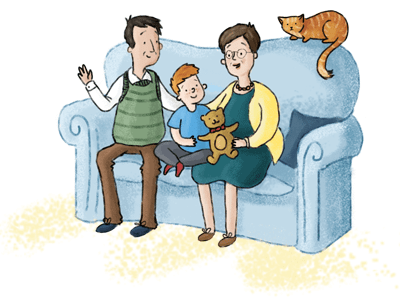
Choosing to live together before marriage is increasingly the norm, with the number of couples choosing to cohabit on the up. There is a common misconception that cohabiting couples are protected by “common law”, giving them the same legal rights as married couples or those in a civil partnership. This is in fact not the case – there is no such thing as cohabitation law and there is actually very little legal protection for unmarried couples dealing with a relationship breakdown.
However, there are ways you can protect your assets in the event your relationship ends. This is particularly crucial if children are involved, as protecting your wealth will provide security and help safeguard their future. Although this may be an uncomfortable thought (after all, no one wants to plan for the breakdown of a relationship!), it is important to consider all eventualities and arrange legal protection if something was to go wrong, giving you both peace of mind.
Cohabitation agreements
To avoid unwanted conflict further down the line, drawing up a cohabitation agreement (or a ‘living together agreement’ as it is sometimes known) should be the top priority for all unmarried couples that are planning to move in together. A cohabitation agreement provides a level of legal protection and security for both parties in the relationship.
A cohabitation agreement is essentially a contract between a couple that neatly sets out which assets are joint assets, and which are separate. It also outlines what would happen to those assets in the event of a break-up, e.g., if you moved into a property already owned by your partner and then you both live there for several years and have children together, does this become a joint asset? Read more about the benefits of cohabitation agreements what can, and should, be included and how they can provide you with legal protection if your relationship ends.
For a cohabitation agreement to be legally binding, it will need to be drawn up by a lawyer – you can’t just create your own and sign it. Once everything is agreed, the contract must be signed and witnessed by both parties for it to hold up in court.
Properties in a single name
When a property is in your name only, once your partner begins to contribute towards the mortgage and renovations, they will gain a beneficial interest in the property. The level of interest varies depending on the extent of the contributions, but the property’s equity is no longer solely yours.
Arguments can arise over the beneficial interest in the house of each person, as legal ownership differs from beneficial ownership. This is where living together agreements can be used to solve the dispute in a straightforward and less traumatic way.
Planning for the future
With cohabiting now being a common occurrence, it is essential that people know the best way to safeguard their financial interests. From putting in place a cohabitation agreement, to preparing a will to protect your personal wealth, we’re here to help.
The best time to put a cohabitation agreement in place is before moving in together, but it’s never too late to set one up or seek advice if you’re feeling financially vulnerable. Our Family Team can provide advice on reaching an agreement that works for your relationship.
For more advice on putting a cohabitation agreement in place, speak to Keith Bull who is an expert accredited on the Resolution Panel to deal with cohabitation disputes. Keith can be contacted on 0161 330 6821 or kbull@bromleys.co.uk











